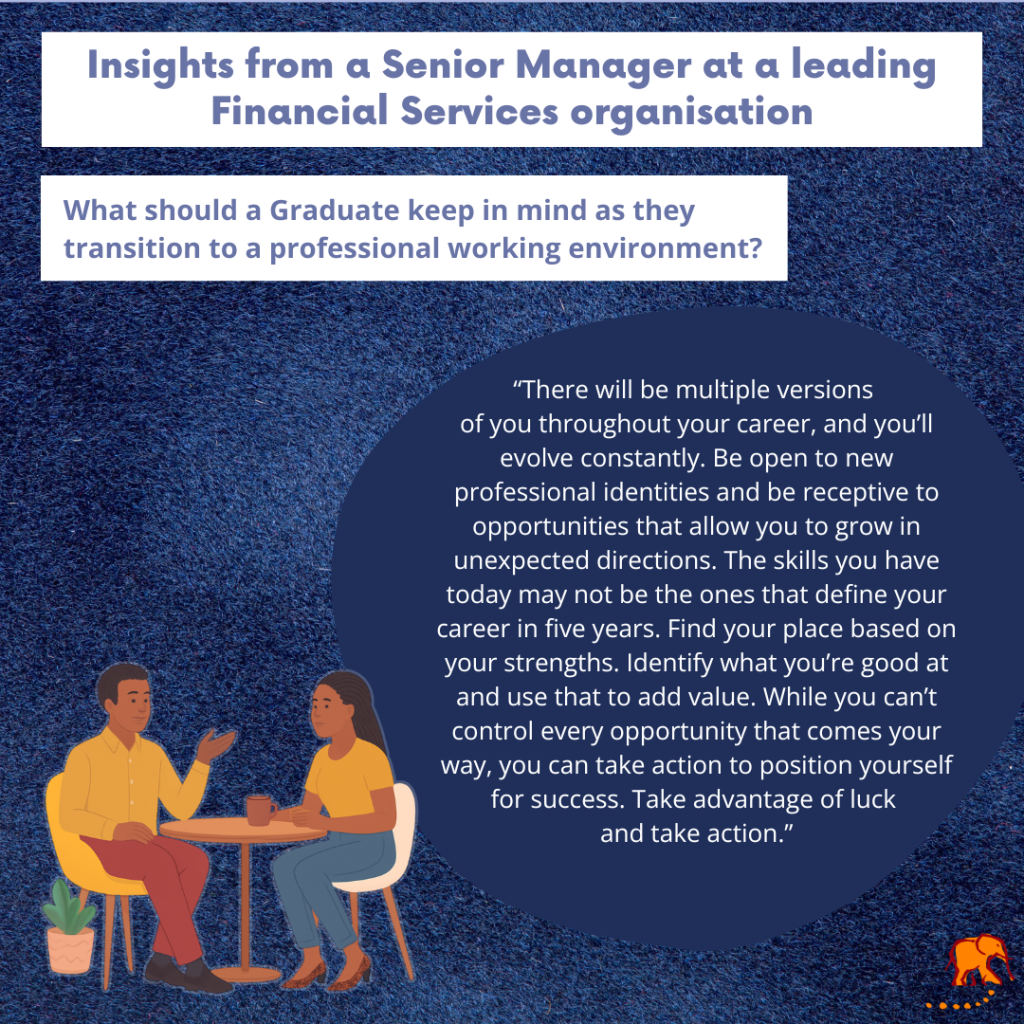
Insights from a Senior Manager at a leading Financial Services organisation on how the world has changed since he was a Graduate, what he’s learned, and what it takes to be successful.
Q&A
In your view, what are the most significant changes in the business landscape since you began your career?
In my view, the business landscape has evolved toward less hierarchical organisational structures, making leadership more accessible and fostering more collaboration. The Covid pandemic also caused a shift in focusing on an employee as a whole and considering their well-being beyond their professional lives. And while the broader global environment may seem more uncertain, it does feel like there is some levelling off of uncertainty on an industry and economic level compared to when I began my career when the world had experienced a global financial crisis.
Looking back on your career, what key insights would you share with your younger self?
Firstly, that it’s normal to feel a bit daunted or have moments of self-doubt when you move into new environments or roles. It’s important to accept that you’re not expected to know everything on day one. Instead of letting that feeling stop you, use it as motivation to lean into the learning process. Secondly that progression isn’t solely based on being a good performer. Often career advancement comes from adding tangible value and solving increasingly complex problems. You have to actively seek out and propose solutions for bigger challenges, even if they’re not explicitly part of your job description. This proactive approach is what drives a career forward. Finally, I would say that you never truly “arrive” in your career. The professional landscape is constantly changing, and a mindset of continuous learning and adaptation is essential, regardless of your role or tenure.
What advice would you offer to recent graduates entering the industry, particularly regarding professional positioning and resilience?
Find a career sponsor. You need to add value and show how you can contribute, showing you’re worth the investment. Find someone to advocate for you when things get tough. Success is a combination of effort and luck; you can’t get anywhere without both.
Concentrate on building strong relationships, acting respectfully, and tackling challenges with maturity. Don’t get distracted by politics as it erodes your reputation – your focus should always be on doing great work. Cultivate a sense of personal accountability. It’s easy to feel like a victim of circumstances when things don’t go as planned, but resilience lies in managing expectations and owning your response to setbacks. You can’t control what you can’t control. So, instead of dwelling on a problem, ask yourself, “What can I do about it?” This proactive mindset, rather than a passive one, will make you a resilient and valued professional.
What should a Graduate keep in mind as they transition to a professional working environment?
There will be multiple versions of you throughout your career, and you’ll evolve constantly. Be open to new professional identities and be receptive to opportunities that allow you to grow in unexpected directions. The skills you have today may not be the ones that define your career in five years. Find your place based on your strengths. Identify what you’re good at and use that to add value. While you can’t control every opportunity that comes your way, you can take action to position yourself for success. Take advantage of luck and take action.
